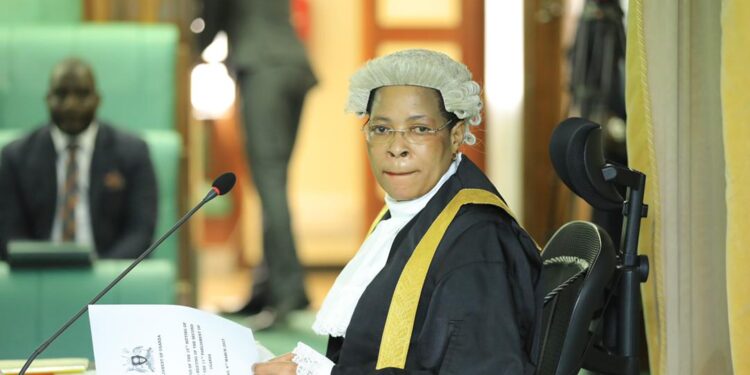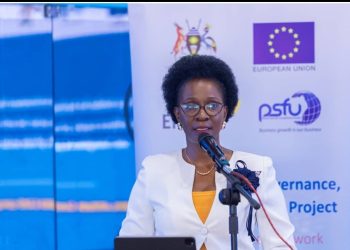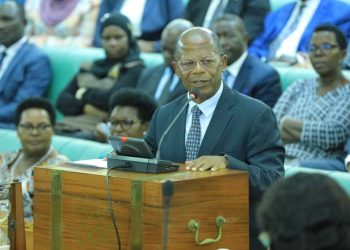In defiance of outcry from human rights organizations, lawmakers on Thursday brought legislation to Parliament that calls for severe additional punishments for same-sex relationships in a nation where homosexuality is already prohibited.
The Speaker of Parliament, Ms. Annet Anita Among, sent the Bill to a House committee for review as the first step in a hurried procedure to bring the measure into law.
She added in a homophobic-laced speech before parliament that there would be “a public hearing” in which sexual minorities would be permitted to participate.
“Let the public come express their views — including the homos — allow them to come,” she said.
The Bill is introduced as hoax claims that covert international organizations support homosexuality gain currency on social media in conservative Uganda.
Anyone who partakes in same-sex conduct or “holds out” as LGBTQ might be sentenced to up to 10 years in prison under the new law.
Uncertainty surrounds the potential length of the parliamentary procedure.
When the time comes, Ms. Among said, lawmakers would vote on the Bill in front of their fellow colleagues one at a time.
“This is the time you are going to show us if you are a homo or not,” she said.
Uganda is renowned for its stringent Christian views on sexuality in general and its rejection of homosexuality.
Nonetheless, since the country’s 1962 separation from the United Kingdom, there has never been a conviction for consenting same-sex behavior.
According to rights organizations, the measure would lead to further persecution of a defenseless minority group.
A court later overturned a statute that Ugandan lawmakers approved in 2014 that mandated life in prison for anyone found engaging in gay sex.
In a statement released on Thursday, Human Rights Watch (HRW) called the new legislation “a revamped and more atrocious version” of the 2014 bill.
“Ugandan politicians should focus on passing laws that protect vulnerable minorities and affirm fundamental rights and stop targeting LGBT people for political capital,” said Oryem Nyeko, Uganda researcher at HRW.

































































